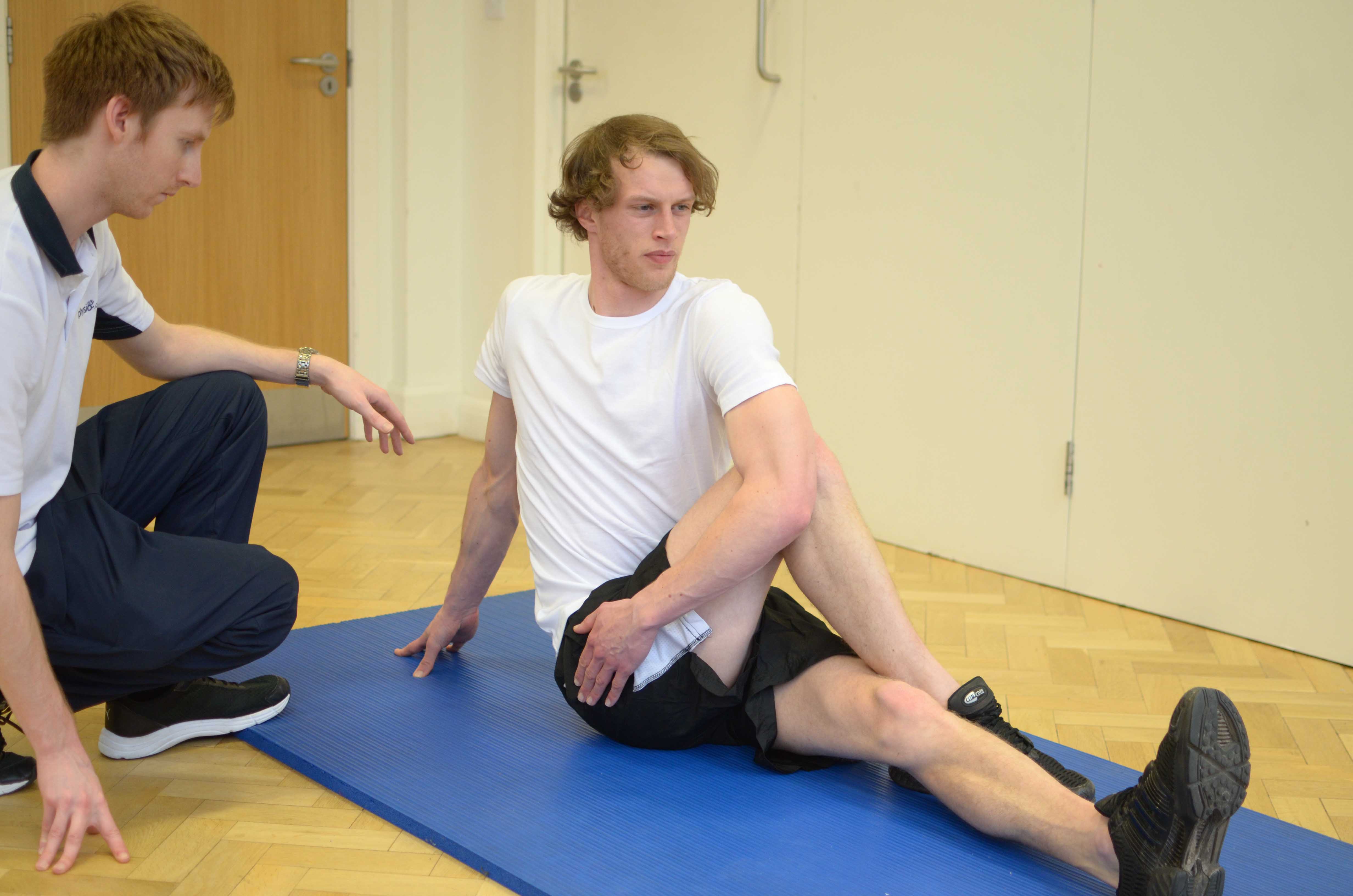What is neurosurgery?
Neurosurgery or Neurological surgery is a specialised type of surgery that is used to treat problems of the neurological system. The neurological system is made up of the brain, spinal cord and peripheral nerves and there are many different conditions that can affect these areas. Neurological surgery consists of many different procedures that can be used depending on the type of neurological condition. Physiotherapy can be important prior to neurological surgery and is essential in rehabilitation following neurological surgery.
 Above: mobilisations of the upper limbs in a functional movement pattern with assistance froma neurological
Above: mobilisations of the upper limbs in a functional movement pattern with assistance froma neurological How does neurological surgery help?
Neurological surgery can have many benefits including:
- Reduced pain
- Reduced spasticity
- Reduced contractures
- Improved gait and reduced falls risk
- Increased functional activity
- Increased sensation
- Increased proprioception
- Improved bladder and bowel control
- Reduced muscle spasms
- Improved coordination and balance
- Improved speech and swallowing
- Improved motor skills, both gross and fine
Who benefits from neurological surgery?
There are many conditions that can respond well to neurological surgery including:
- Head trauma
- Spinal cord trauma
- Spastic Cerebral Palsy
- Spastic Quadriplegia
- Spastic Hemiplegia
- Parkinson’s Disease
- Hydrocephalus
- Moyamoya Disease
- Peripheral nerve damage
- High levels of spasticity in the lower limb
- Contractures of the lower limb
- Sensory problems
- Trauma to an area of nerves
Types of neurological Surgery
There are many different types of neurological surgery including:
- Laminectomy
- Cerebral Aneurysm Repair
- Spinal Fusion
- Rhizotomy
- Disk removal
- Anterior Temporal Lobectomy
- Craniotomy
- Deep brain stimulation
Benefits of physiotherapy preneurological surgery
Surgery is a complex procedure and can have a big effect on the body so it is important that the individual is prepared for it. Physiotherapy can help to prepare an individual prior to neurological surgery by:
- Increasing strength
- Increasing mobility
- Increasing flexibility
- Advising on weight loss
- Optimising lung capacity
What would physiotherapy involve for someone prior to neurological surgery?
There are some treatments and techniques that physiotherapists can use prior to surgery to speed up the rehabilitation process following neurological surgery. These may include:
- Strengthening exercises
- Mobility encouragement
- Stretching exercises
- Weight loss advice
- Pain management strategies
- Electrotherapy
- Chest physiotherapy and advice
Benefits of physiotherapy followingneurological surgery
Physiotherapy is very important in rehabilitation following neurological surgery. The benefits of physiotherapy include:
- Increased range of movement
- Reduced spasticity and contractures
- Increased muscle strength
- Improved movement control
- Improved gait (walking)
- Improved balance and coordination
- Increased independence
What would physiotherapy involve for someone following neurological surgery?
There are many different treatments and techniques that physiotherapists could use following neurological surgery. Physiotherapy following neurological surgery can often be a long and intensive process so it is important that the individual is motivated to achieve the most effective results. Treatment may include:
- Scar management
- Range of movement exercises
- Strengthening exercises
- Proprioception exercises
- Manual techniques
- Sensory techniques
- Electrotherapy
- Use of equipment
- Movement techniques
- Walking practice
- Practice of everyday activities
Summary
There are many different types of neurological problems and these can have a serious effect on everyday life. In some cases surgery is the best treatment. There are a lot of surgical techniques that can treat neurological problems. Physiotherapy has many benefits following surgery and it is essential in the process of rehabilitation.
For more information on neurological surgery please contact us or call Physio.co.uk on 0330 088 7800.

 0330 088 7800
0330 088 7800

































